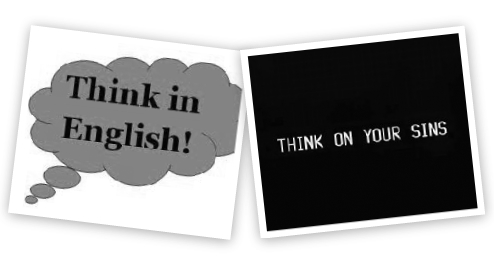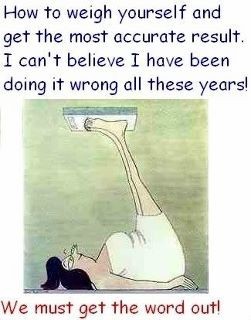Now , this is one of the most common mistakes in English. I have heard lots of students saying: I haven’t a dog, which I’m afraid is wrong. If you want to say that you have or don’t have something you can say “I haven’t got a dog” or” I don’t have a dog” and if the sentence is positive you should say “I have got a dog” or “I have a dog“. Same if you want to ask, both” Do you have a dog?” and “Have you got a dog?”are correct.
saying: I haven’t a dog, which I’m afraid is wrong. If you want to say that you have or don’t have something you can say “I haven’t got a dog” or” I don’t have a dog” and if the sentence is positive you should say “I have got a dog” or “I have a dog“. Same if you want to ask, both” Do you have a dog?” and “Have you got a dog?”are correct.
While it is true that there is a BBC radio show called “I’m sorry I haven’t a clue” the truth is that native speakers also make mistakes and this is only correct as long as it is considered an idiomatic expression.
While both forms are used to express possession ( I have/have got a car), relationships (I have/have got a brother), illnesses (I have/have got a headache), and characteristics (I have/have got long fair hair), there are some things to take into consideration when using them
♥The form “have got” is more British English and “Have” is more American
♥ The interrogative and negative forms for “I Have got two sisters” are “Have you got..?” and “I haven’t got…”
♥The interrogative and negative forms for “I have three sisters” are ” Do you have three sisters ” and ” I don’t have three sisters”
♥ The past of “have got” is “had” and the future is “will have”: “I have got a dog now but three years ago I had a cat and next year I’ll have a parrot”.
♥”Have ” is never contracted in the positive, while “have got” can be contracted. I have a dog … I’ve got a dog
♥ Got-forms of “have” are not used in short answers or tags. “Have you got a dog? No, I haven’t/ You’ve got a brother, haven’t you?.
♥When we are talking about repeated states, got- forms are less often used. Compare
I have got a headache/ I sometimes have a headache
♥If “have ” expresses an action, then we need to use the form “have”:
I have a shower or I have dinner
♥We can use have (got) +infinitive to talk about obligation or certainty. The meaning is similar to Must
Sorry, I can’t leave. I’ve got to finish writing this essay first.
I don’t believe you. You’ve got to be kidding
 say that this is unusual weather for this time of the year. So, if you are considering holidaying in this part of the world, don’t cross it off just yet; the weather must definitely improve this week ( it can’t get any worse).
say that this is unusual weather for this time of the year. So, if you are considering holidaying in this part of the world, don’t cross it off just yet; the weather must definitely improve this week ( it can’t get any worse).

 and it has been raining nonstop for two long weeks. I, for a start, have to keep reminding myself, that bad weather will eventually end and that, eventually, I’ll have a chance to wear my new bikini. And, every single Monday, I get on my bathroom scale and I can almost hear the joking scale saying: “Is someone on here with you?” or “Hey, get Pavarotti off me” and every single Monday I promise myself I am going to start a diet and lose some weight so that the next time I climb onto the scale, it’ll hear something like “Right on, girl! You’re loosin’ it baby.”
and it has been raining nonstop for two long weeks. I, for a start, have to keep reminding myself, that bad weather will eventually end and that, eventually, I’ll have a chance to wear my new bikini. And, every single Monday, I get on my bathroom scale and I can almost hear the joking scale saying: “Is someone on here with you?” or “Hey, get Pavarotti off me” and every single Monday I promise myself I am going to start a diet and lose some weight so that the next time I climb onto the scale, it’ll hear something like “Right on, girl! You’re loosin’ it baby.”